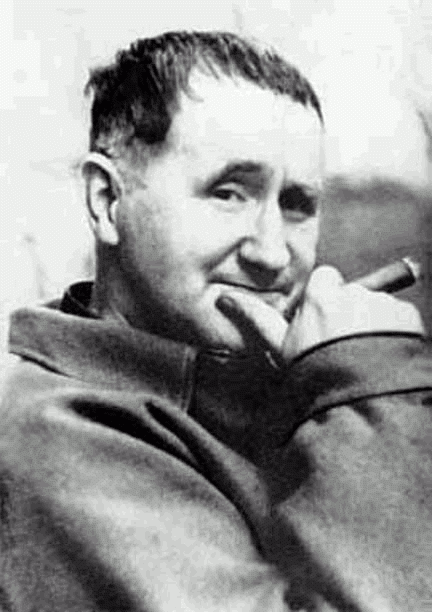On November 16–19, in the Bruce Montgomery Theatre at the Annenberg Center for the Performing Arts, Penn’s Theatre Arts department will bring the classic Brecht play, The Good Person of Szechuan, to life for their semesterly production, with some tweaking.
David O’Connor, the Theatre Arts Program’s adjunct faculty member directing this production, spoke to Street about the added elements of puppetry, original music and the use of Mandarin to the “heroin version” of the play.
Yep. Heroin version.
In the original version of the play finished in 1941, the main character, Shen Te, always tries to do the right thing and take care of everyone, which is a difficult thing to do when she can barely support herself with the few resources she has. Towards the end of the play, Shen Te turns her small town into a tobacco farming town in order to save money and prepare for the arrival of her child. This proves to be problematic because she turns out to be a terrible boss and the entire town suffers under her harsh labor conditions.
In the version of the play O’Connor is directing, which was written in 1943, instead of turning the town into a tobacco farm, Shen Te essentially becomes a heroin dealer.
“[This version of the play is] a little harder. The critique is a little sharper, and the impact of heroin, as a dynamic, is very relevant,” O’Connor said, “It’s become a problem, and not just in places that are still economically dire, but all over. Drugs and drug use and profiting off drug use as part of the equation is super relevant.”
This added theme plus the choices to use original music composed by Patrick Lamborn, puppetry involving large masks and household objects, and different languages is aided by the incredibly diverse nine person cast. Patrick Lamborn, a Philadelphia based musician who collaborated with the Theatre Arts Program last semester on their production of The Eumenides, provides live music on stage. O’Connor’s elementary school aged son, Zach, is double cast with his classmate Wyatt in the role of the child. The remaining seven cast members are Penn students, but four of them are exchange students from Germany, Japan, and China.
The two Chinese foreign exchange students play an integral part in the message of the play. The two students play three gods using puppets, and a lot of their dialogue includes Mandarin. It allows for the three characters to interact with one another without having the other characters understand them, which “adds a lot of fun and flavor to the play.”
“[The play] ironically takes place in China by a mid–century European man who uses China to place it in a far off, distant land,” O’Connor said. “So, having Chinese people speaking Chinese is sort of a fun both honoring and middle finger towards that.”
Bertolt Brecht, the mid-century European man whose play O’Connor adjusts and subverts, was a poet, director and playwright who thought that theater was not a place for audience members to emotionally identify. Instead, he insisted that the theater should influence spectators to rationally and critically reflect on themselves so that they could take steps towards recognizing and standing up against social injustices. This type of theater that Brecht proposed eventually came to be known as “epic theater,” and despite all he said about theater not emotionally touching audience members, The Good Person of Szechuan is not devoid of emotion.
“It’s a love story with the most depressing ending you will ever find in your entire life, and I don’t mean Romeo and Juliet depressing,” said Helena von Nagy (C’18). “I mean it will leave you in a little huddled heap on your chair. “
Helena plays Shen Te, a young prostitute who disguises herself as Shui Ta, a male alter ego, in the production. Like O’Connor, she finds that parts of the play are quite relevant today, especially to the current election and gender stereotypes.
“Brecht obeys gender stereotypes in the creation of Shen Te and Shui Ta,” she said, “Of course, Shen Te is the dumb, naïve one—she’s the girl. And the Shui Ta is the more calculating slightly less emotional one, and he’s the guy. And that bothers me.”
p.p1 {margin: 0.0px 0.0px 0.0px 0.0px; text-indent: 9.0px; font: 10.5px 'Adobe Garamond Pro'} span.s1 {font-kerning: none}
Tickets for The Good Person of Szechuan will be on sale soon at the Annenberg Center for the Performing Arts and on their website.

